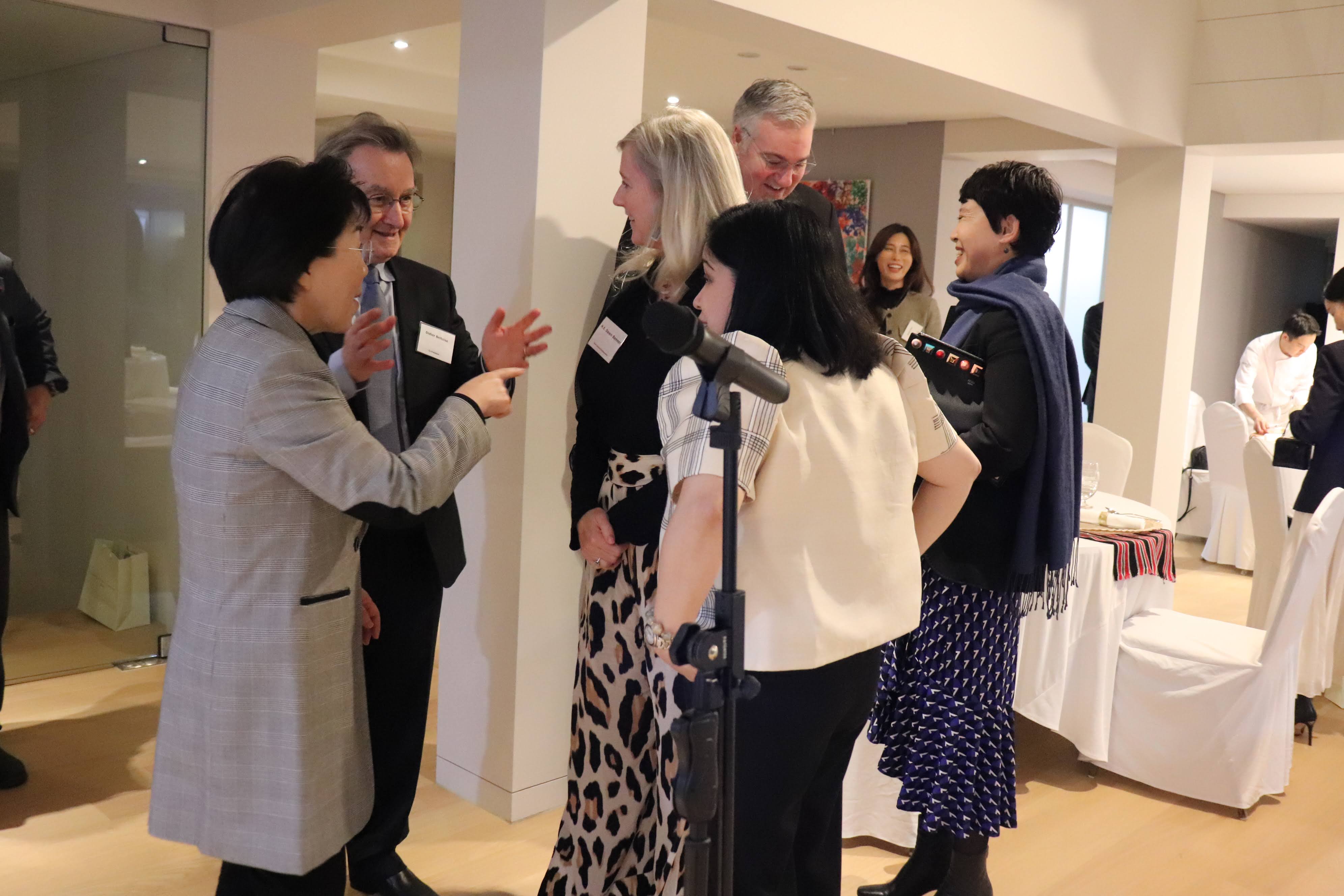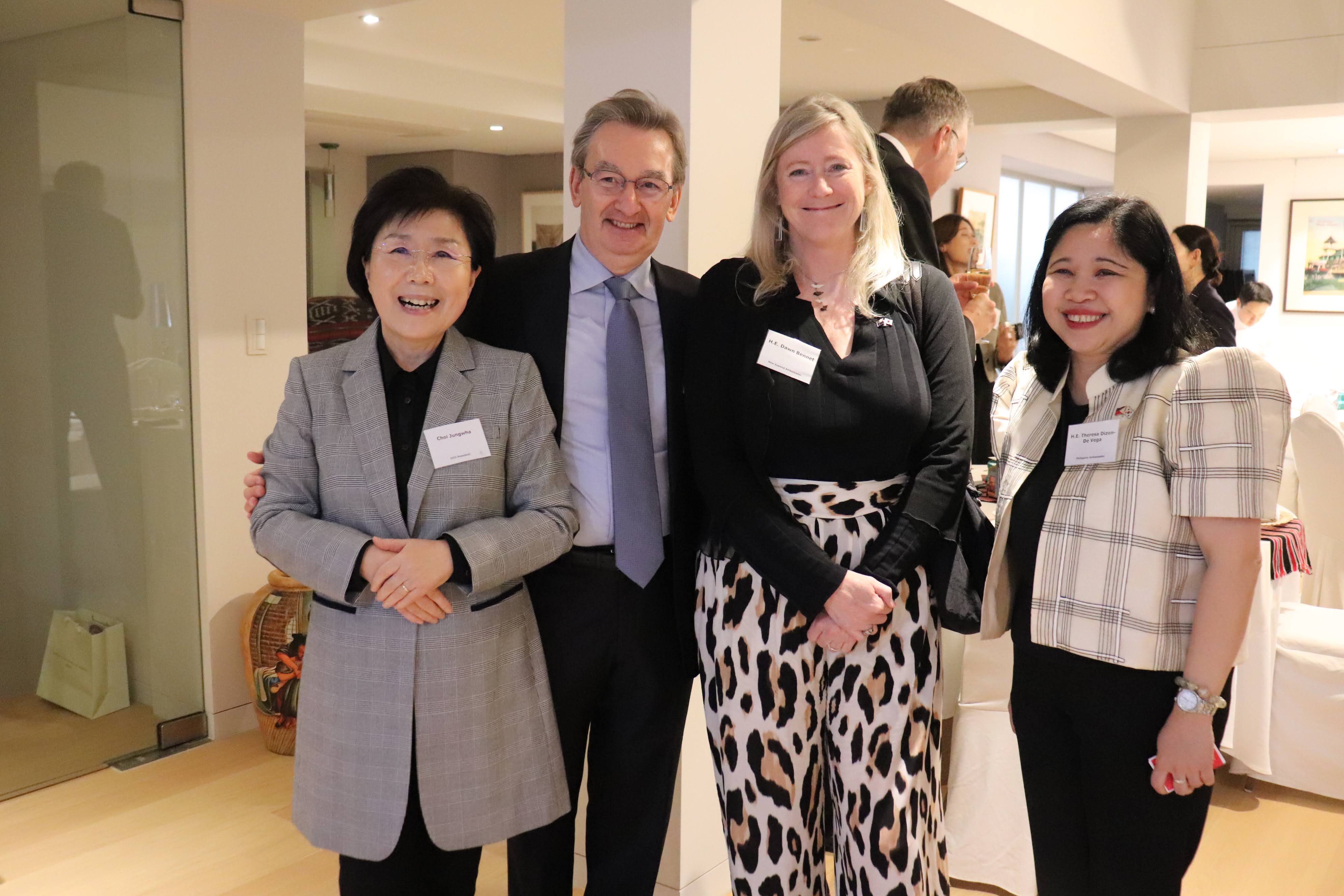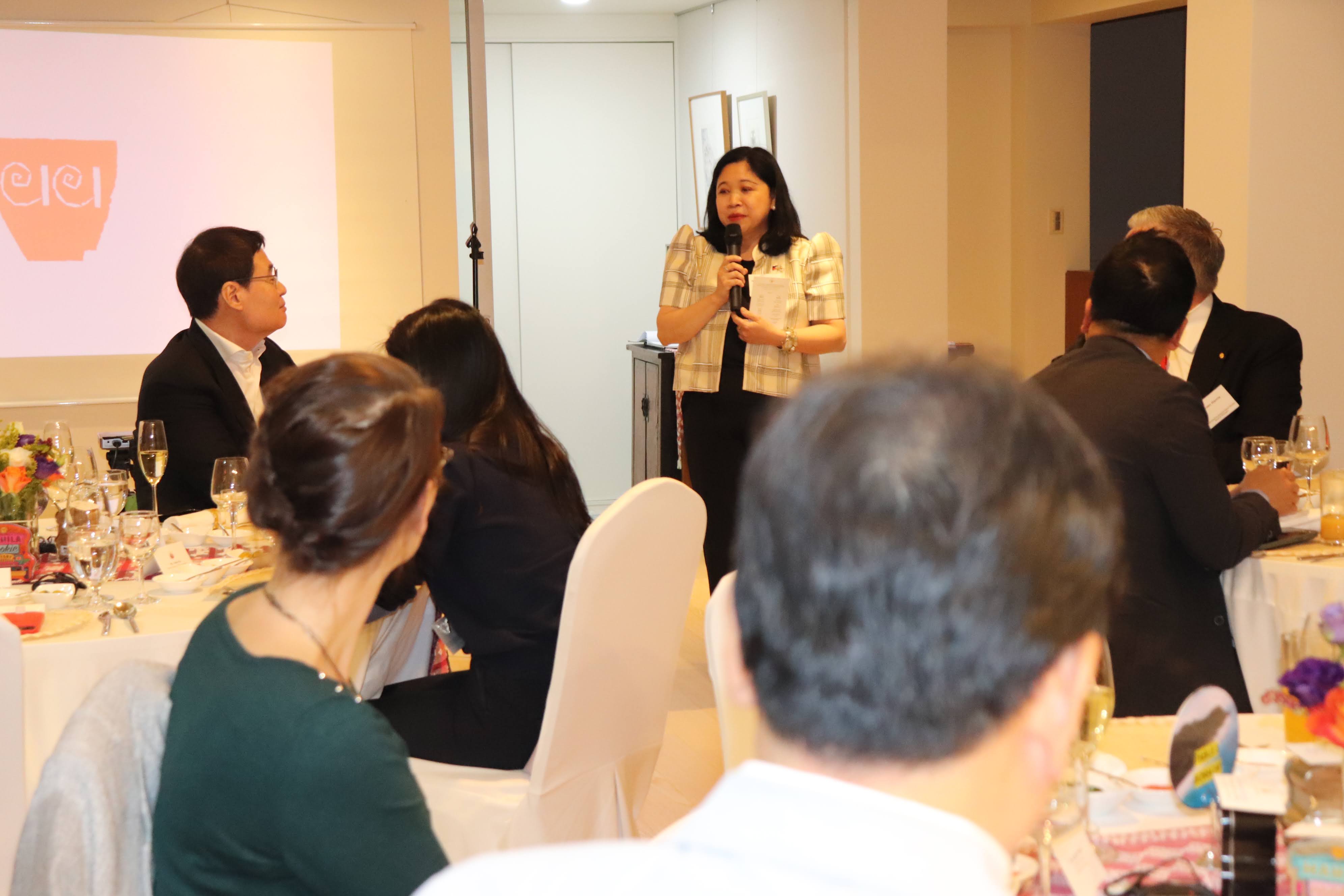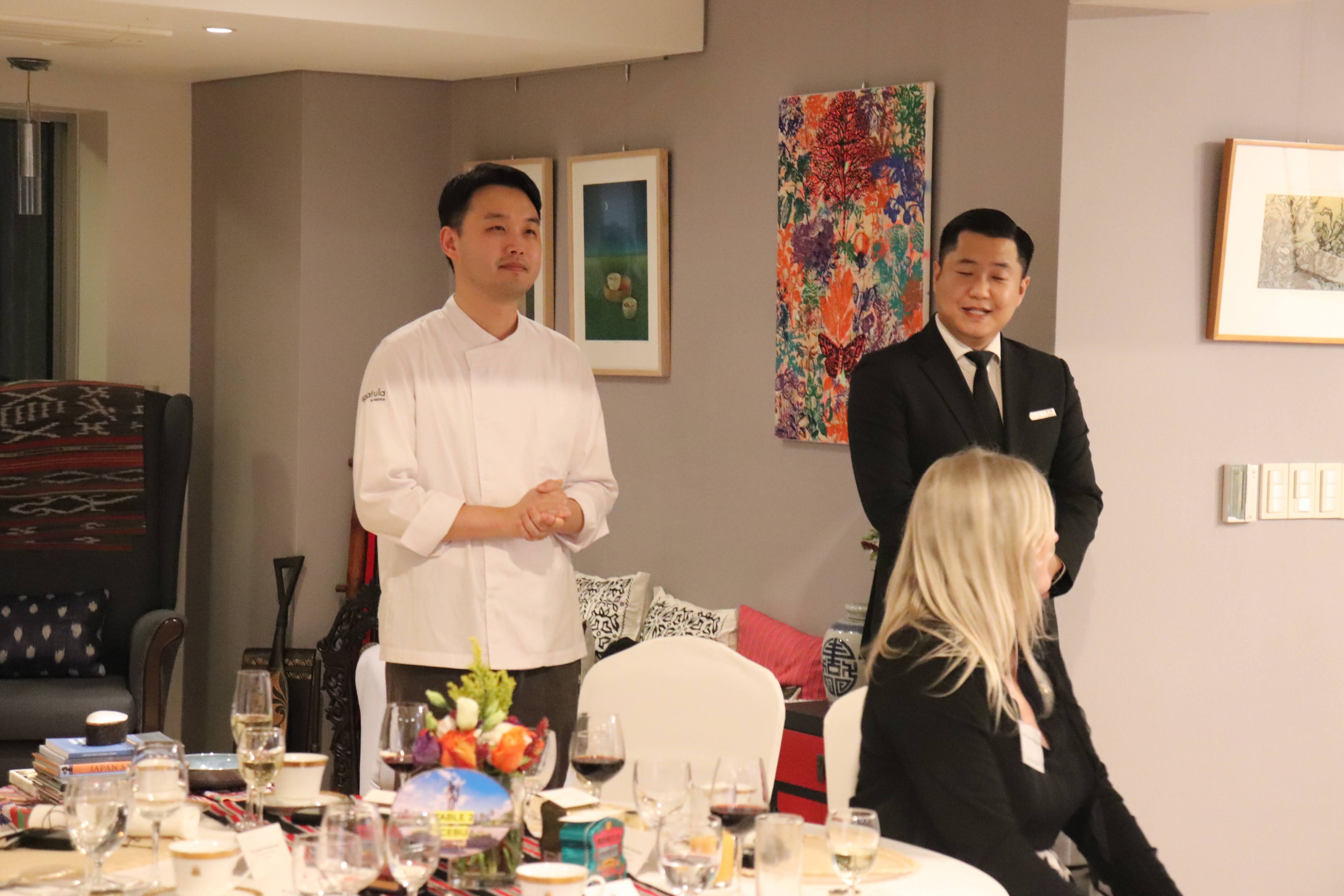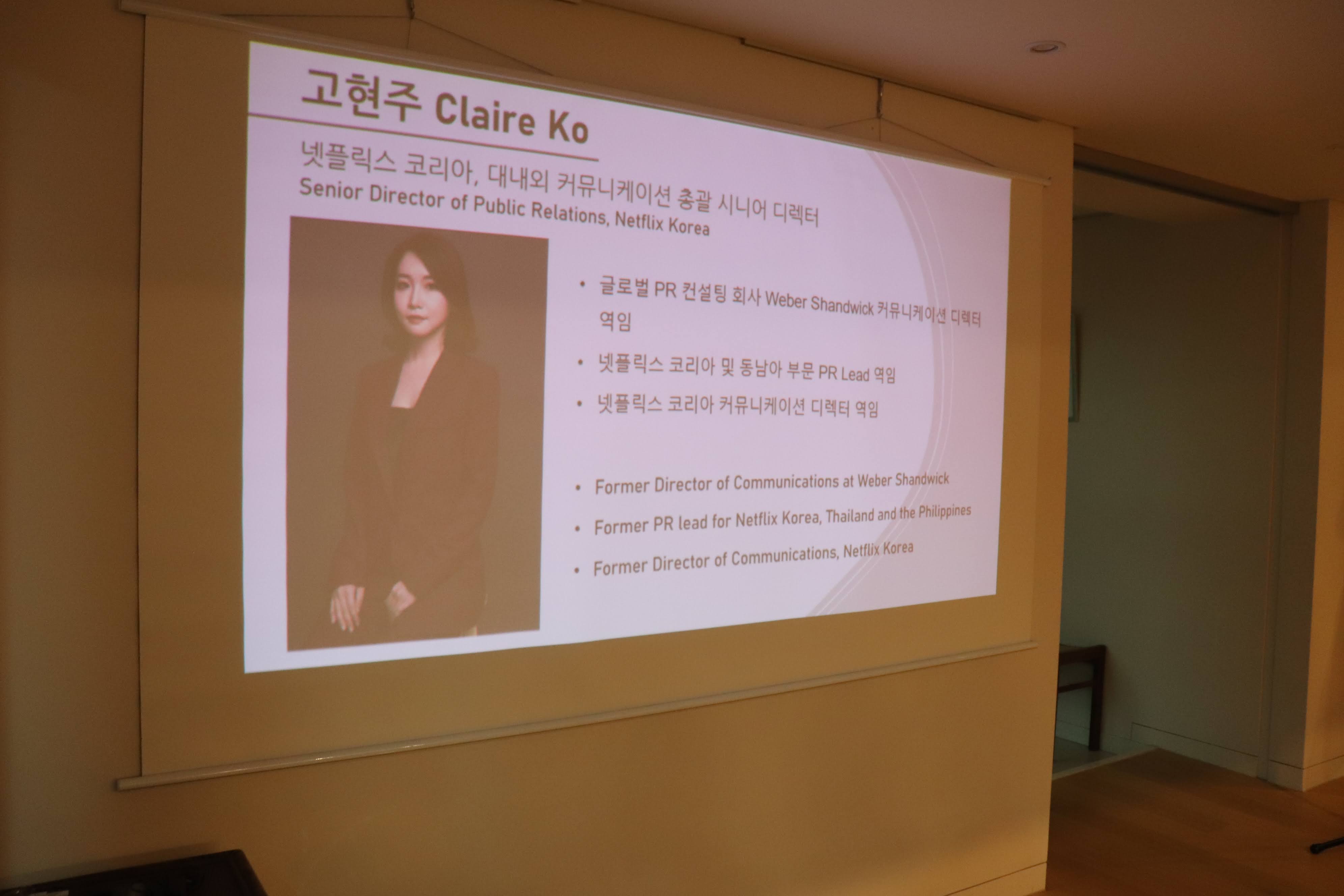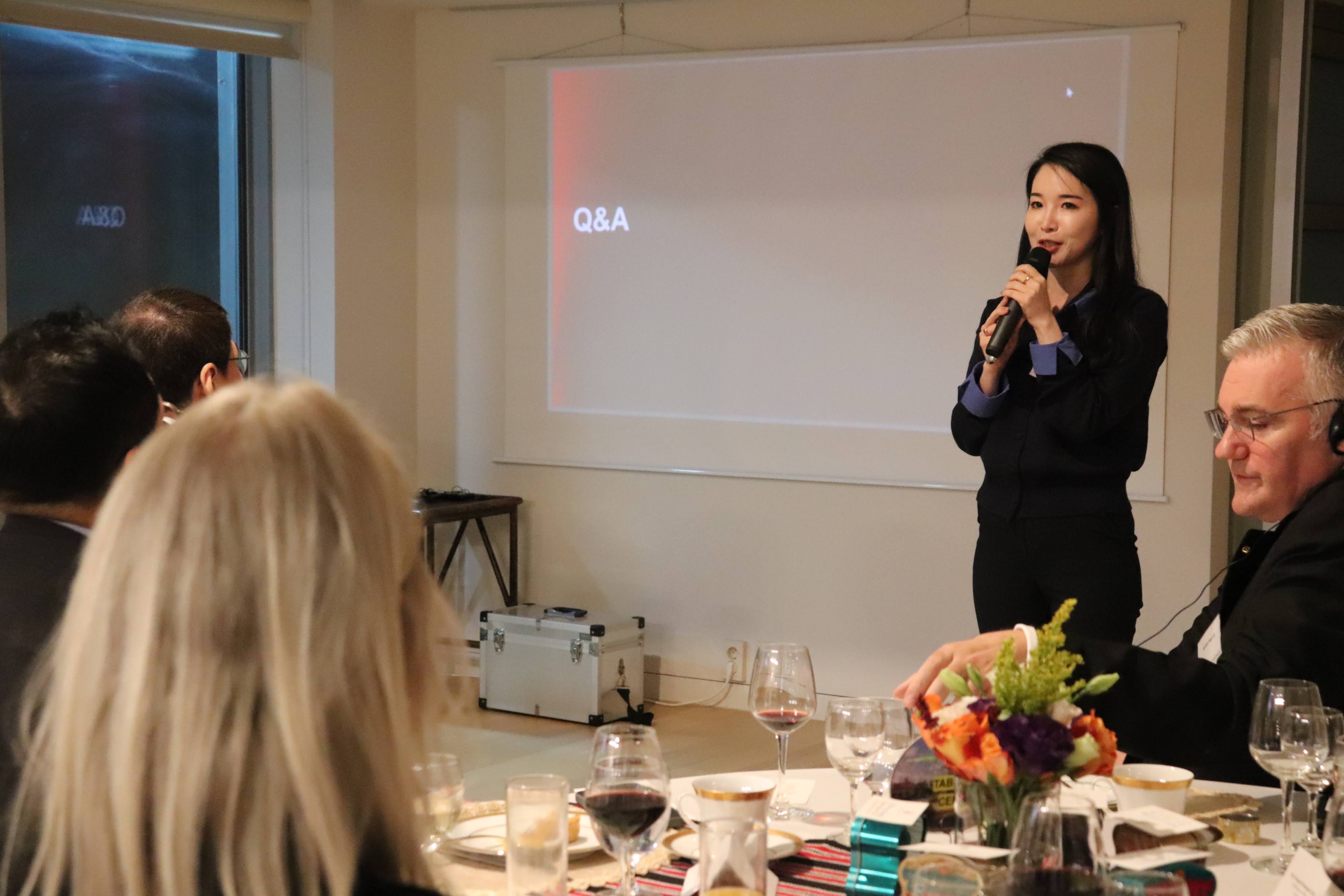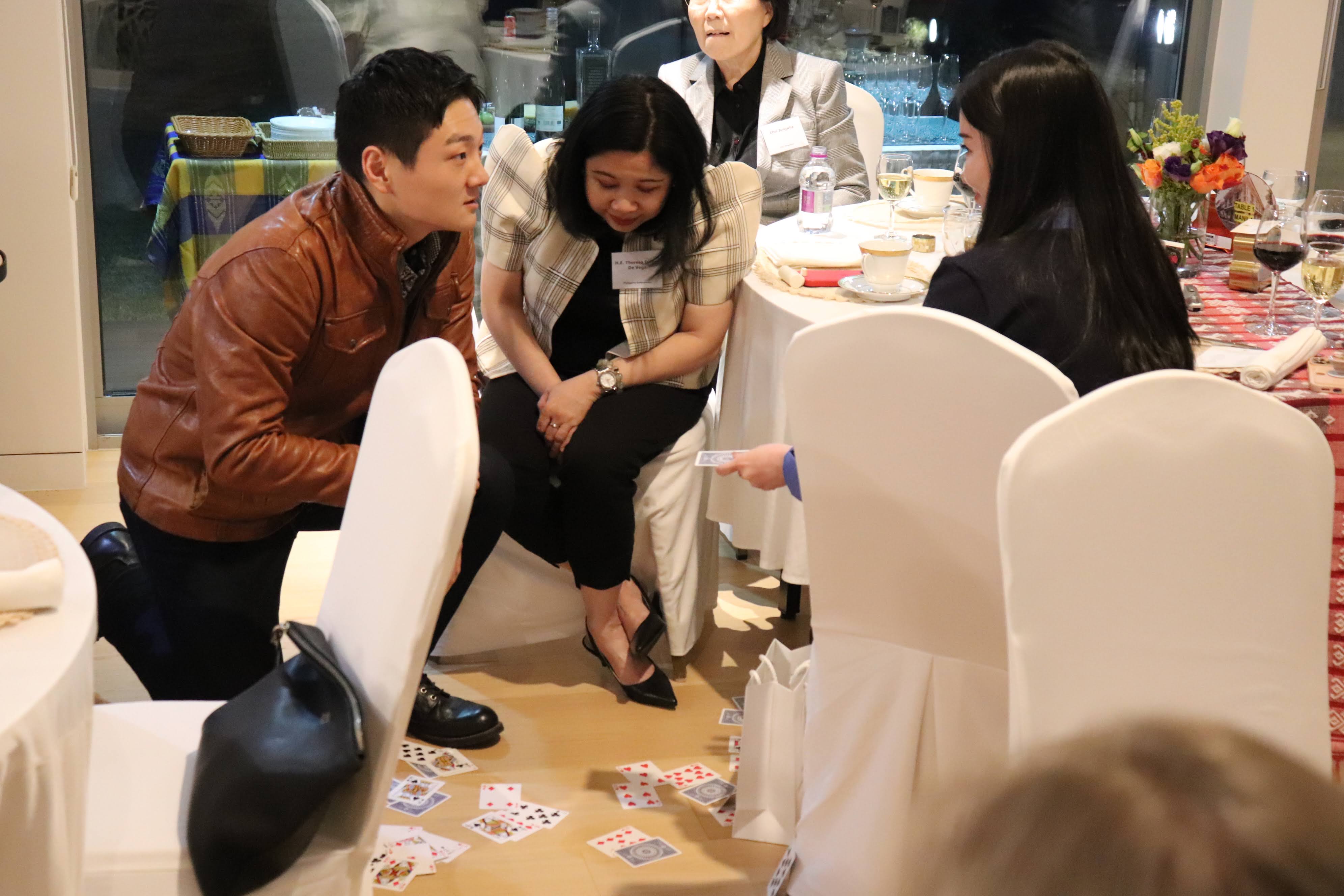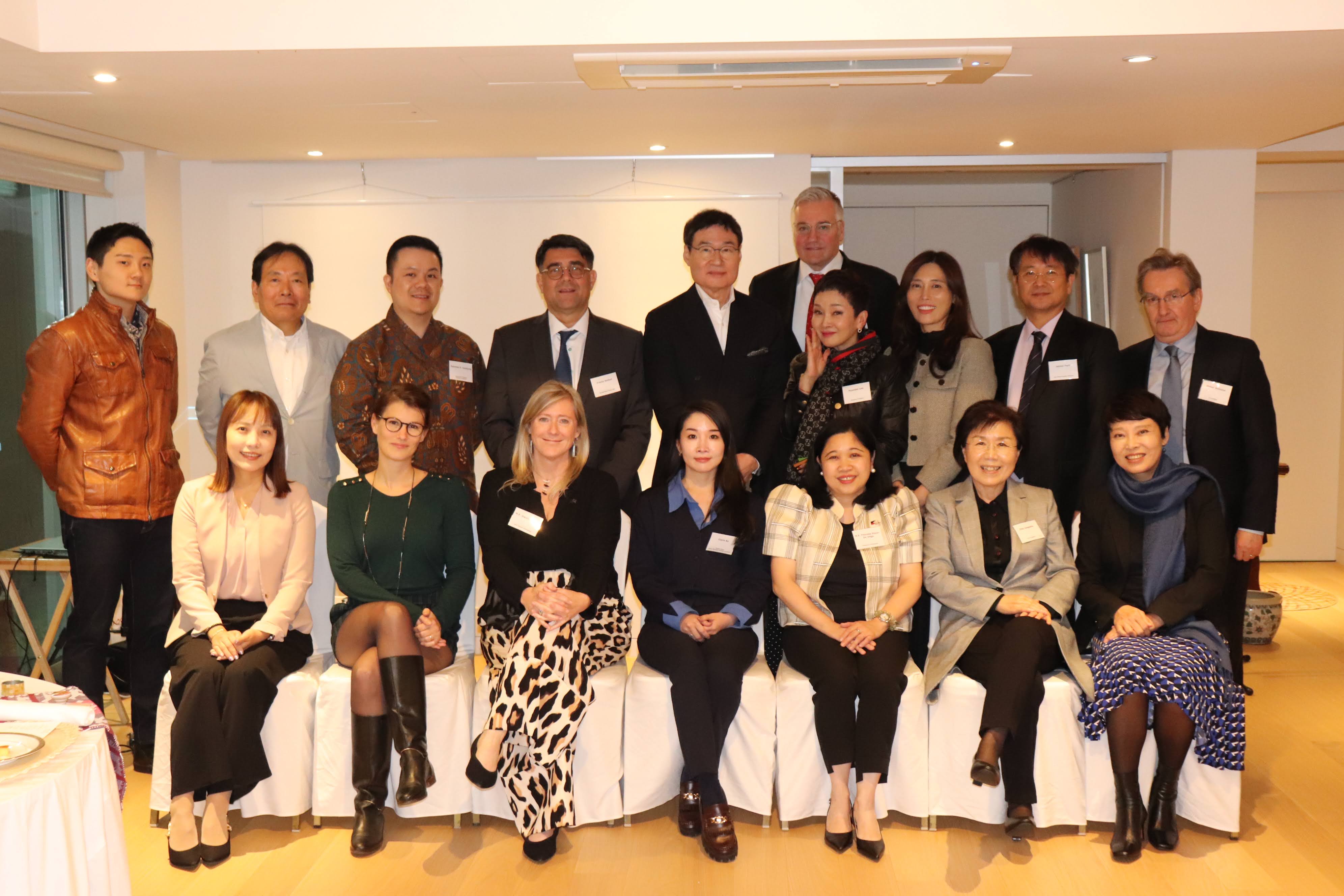
Home > CICI News > What’s New

| Title | Korea CQ - 'Netflix Bridges Between Korean Content and the World' by Claire Ko | ||||
|---|---|---|---|---|---|
| Posted by | webmaster | Hit | 743 | Date | 2023.10.31 |
Dear Korea CQ Members, On October 17th, Korea CQ held a special lecture by Claire Ko, Senior Director of PR at Netflix Korea, at the Philippine Ambassador's residence. H.E. Theresa DIZON-DE VEGA, Joannes E. Tandjung, H.E. Dawn Bennet, Claire Ko, Agathe Vinson, Frantz Hotton, Ed Kwon, James Park, Lee Hyun-joo, Brian Harris, Choi Sung-hoon, Ian Jeong, Jackie Son, Eugene Bang, Stéphane Deblaise, Joseph Young, Youngha Go, Crystal Park, Choi Jungwha and Didier Beltoise attended this forum.
The Philippine Ambassador warmly welcomed everyone, as members enjoyed the various welcome drinks and finger foods.
The Ambassador specially arranged a Filipino dinner through Spatula by Haevichi
With the ambassador's warm welcome, the dinner commenced.
The dinner featured ceviche salad and fresh vegetable roll as appetizers
followed by main courses including deep-fried pork, spicy pork belly, Filipino-style fish, chicken skewers, and green papaya pickle garlic rice.
The highlight of the dinner was the sweet finish with coconut pie and Filipino-style caramel pudding. The chef who prepared the delightful dinner briefly came out to greet everyone.
After enjoying the heartfelt dinner that conveyed the beauty of the Philippines, we listened to the lecture by Claire Ko, Senior Director of PR at Netflix Korea.
Claire Ko answered various questions sincerely, providing insights into the strength of Korean content in the OTT market.
Following the lecture, everyone enjoyed a surprise magic show by Ed Kwon, concluding the event on a cheerful note.
We would like to thank Claire Ko for her informative lecture and to Ambassador Theresa DIZON-DE VEGA for hosting the forum. We also thank everyone for their attendance and Crystal Park for her interpretation help. For more photos, please click the link below. https://photos.app.goo.gl/diLuZsxSusXnvi4HA <Netflix Bridges Between Korean Content and the World> by Claire Ko Netflix plays a central role in bridging Korean content with audiences worldwide. With investments in original content tailored to diverse tastes in over 50 countries, Netflix aims to bring the joy of entertainment to viewers globally. Netflix's history is relatively short. Founded in 1997 by Reed Hastings and Marc Randolph, Netflix introduced streaming in 2007. Since launching global service in 190 countries, including Korea, in 2016, it has continued to expand its reach. Six years later, the Korean series 'Squid Game' won six Prime Time Emmy Awards. Korean content accounts for 60% of Netflix's global audience consumption, with over 90% of K-romance views coming from countries other than Korea. Korean films like 'Carter' and series like 'The Glory' and 'Now at Our School' ranked in the top 10 in 90 countries. Furthermore, 'Extraordinary Attorney Woo' and 'Reborn Rich,' introduced globally through Netflix, were nominated for Emmy Awards. Netflix is a strong partner in Korea's creative ecosystem, investing over 1 trillion won from 2016 to the end of 2021. This investment covers the entire process from planning and investment decisions to filming, editing, post-production, and distribution. As of 2023, Netflix plans to invest around $25 billion over four years. Through a partnership with the Korean Film Council (KOFIC), Netflix aims to nurture K-content talents and cultivate the next generation of Korean creators. During his visit to Korea in June 2023, Netflix Co-CEO Ted Sarandos promised significant contributions to future talent development, stating that one out of every five Korean content pieces presented by Netflix from 2022 to 2025 will be the debut work of new writers or directors. Korean content on Netflix supports dubbing and subtitling in up to 33 languages, elevating the status of domestic partners beyond domestic companies to global players. Netflix strives to engage with viewers beyond the screen, participating in pop-up stores and various film festivals to communicate and interact with diverse audiences. Furthermore, Netflix recognizes the power of storytelling in content. Korean content's economic impact has been significant, with approximately 5.6 trillion won in economic effects and the creation of about 16,000 jobs. Moreover, it has fostered growth in derivative/related content industries and experienced a resurgence in original works (novels and webtoons). Netflix's Korean content not only entertains but also conveys culture. Through Netflix, Korea's diverse aspects, including fashion, food, and tourism, are showcased to the world. Q & A Q. K-Dramas have great stories and I’m sure
that many countries have as well. But Korea cannot stay at the head forever, so
where do you see the new trend? Where do you think the new interest will move
on to? A. I hope this K-wave will continue until
my resignation We are producing local originals in fifteen
Asian countries that include Korea. We really have, in the entertainment
industry especially, a long history of making great stories. Now with our
service we can continue to spread these great stories too. My hope is Korea will continue to be the
top. Q. What do you think is the driving success
of K-dramas? Is it Korean culture itself? A. We think there is perhaps something of
intuition. If you look at some Korean shows, for example with zombies. There
are ‘jumping’ zombies, that reminds us of ‘ppali-ppali’, instead of slow motion
zombies you often see elsewhere. The action and emotional entanglement is just
happening a lot faster and it’s pretty unique in Korea. Because people are always looking for more
unique stories, I think people were drawn to these Korean series. I also think
the success is not solely credited to us – it’s thanks to groups like BTS etc,
all the different players who are leading the trend in their respective
industries, and more people get used to what is Korean culture. I hope that K-Pop, K-Beauty, and all
industries do well so that we can create an even greater triple effect. Q. I’ve been watching K-Dramas with my
teenage son, and we watch with subtitles. Now I notice that even when he
watches shows in a language he speaks, he still uses subtitles. I asked why he
does this, and he said all the young people do so now. So I think this is a
positive for content like Korean dramas, because it seems the barrier is even
less now. A. I think it’s a natural trend. People
now, they are developing a habit of consuming content with subtitles. It’s a
good sign for us, but we didn’t intent to make that happen to be honest. Young
people are turning on subtitles even when watching shows in their own language.
That happens to me too, I don’t know why. Sometimes, it might be difficult to
hear what the actor is saying, and I’ll have to turn on the subtitles. Q. As a consumer, I wonder, how do you
manage to always stay on top of your game? We all know the timeline, the delay
between the creativity and delivery of the product. However, Netflix always
manages to be perfectly on trend, and always ahead of the market. How do you
manage that? Do you have to shorten your production? A. Actually, in terms of production
process, especially post production, our model is the longest. To bring the
work as close to perfection as possible, we take a long time, so creatives will
come to us and ask why the production is taking so long. The only way is to
hire local experts who understands the industry, who are really in the know
about what’s happening in the industry, so we can see what’s happening in the
competitive landscape. We are always very conscious about what is happening in
the film industry, series industry, what we’re missing, what we can provide,
and such.
|
|||||











